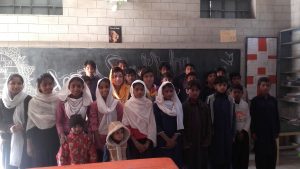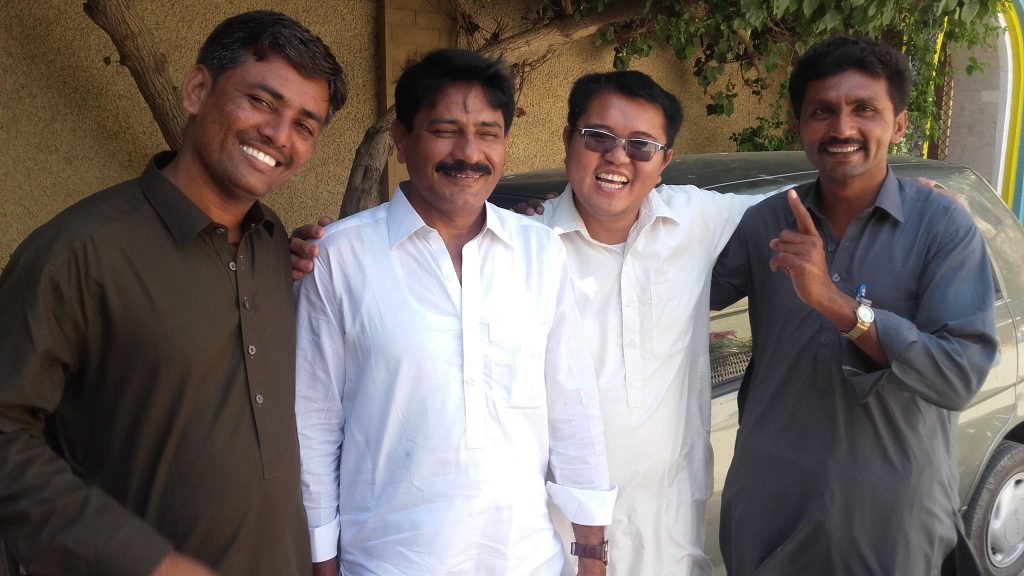Dialogue through the Heart
Elbert Balbastro, Pakistan
The compassion of Jesus towards the Canaanite woman in the Gospel of Matthew is one of the biblical stories that I consider as a good example of doing and promoting dialogue. Jesus, a devout Jew, made a bold move in reaching out to a pagan woman. What a delight for me to know that Jesus transcends beyond the laws prescribed by the Jews. He does not define the woman by her affiliation but as a mother who is crying for help. I find this story as an inspiration to promote inter-religious dialogue because it teaches the value inclusiveness in dealing with people outside religion. It’s a nice reminder that love and mercy are the common denominators of every religion and not the rigid rules and laws prescribed by it.
My relatives from both parents’ sides are faithful Catholics. It is the reason why growing up, I embraced and appreciated the faith that they passed on to me. There was a time in my life when we always spent Good Fridays preparing the statue for the procession, since my aunt was one of the caretakers of the Santo Entierro (Jesus in the coffin). Because of my childhood, being a Catholic is an integral part of my identity.
As time passed by, my experience in engaging with several kinds of faith made me realize that people of other religions and Christian denominations can perform the acts of love and compassion, and break the wall of exclusivity together. Every religion has its own set of beliefs but each person regardless of religion has the capacity to perform good things.
For my spiritual year, I was assigned in Marawi, Philippines to live in the house of a Muslim family for a week. It was a difficult and fearful experience because of what I heard about Muslims from the news. One night, Ina, the owner of the house, brought a stick of chicken barbeque. She told me that it was her compensation for spending the whole afternoon helping out his son sell chicken barbeque on the streets. Instead of eating it alone, she thought of sharing it with us for dinner. That gesture of kindness cleared my heart and mind of my biased judgments and pre-conceived notions about the Muslims. Although we have a different way of performing our prayers and worship, we nevertheless share the same virtues of love, goodness and mercy.
 I also witnessed the goodness and generosity of the Hindus in Pakistan. I taught in a Catholic school in Khipro parish and a good number of my students were Hindus. They did not look at me as a Christian, but as a person – a brother and a friend. I am forever thankful for the greatness of my Hindu friends in Pakistan.
I also witnessed the goodness and generosity of the Hindus in Pakistan. I taught in a Catholic school in Khipro parish and a good number of my students were Hindus. They did not look at me as a Christian, but as a person – a brother and a friend. I am forever thankful for the greatness of my Hindu friends in Pakistan.
In my journey of dialogue with other religions, I have embodied the insight that dialogue entails listening but I could only understand deeply by using my heart. In my reflection with what Jesus did to the Canaanite woman, I realized that perhaps Jesus had the initial instinct to view her through the lens of his own religion as well. Seeing the willingness of the woman to do everything for her daughter must have changed his mind.
My encounters with the Muslim family removed my previous idea that my religion is better than others. Through that encounter, I have become someone whose identity remains Christian but with a capacity to love and understand that is inclusive to my brothers and sisters from other religions.
Now, I approach life in a way that is more relational rather than institutional. We are all living in this web of life and we are designed to be united instead of creating factions. Therefore, religion should not stop us from reaching out and collaborating with one another because relationships always prevail over institutions. If only the Muslims, Hindus, Buddhists Christians and people from other religions all over the world would open their hearts and minds, the world will achieve the healing and reconciliation.


